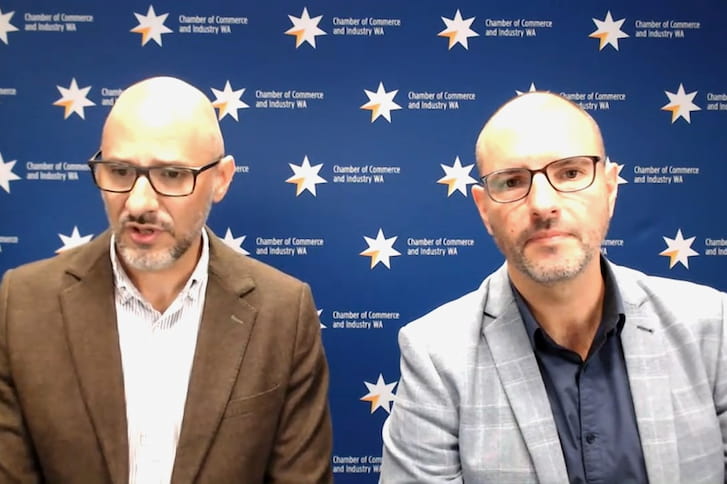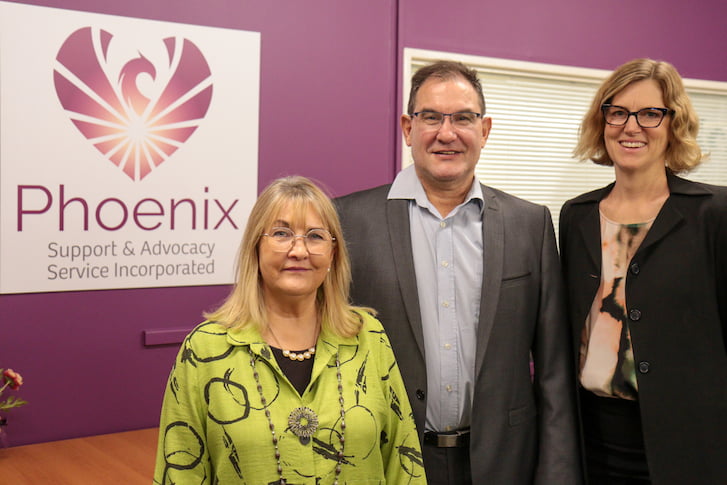The construction and hospitality industries are two industries being targeted by the ATO this financial year as the Federal Government bolsters its compliance powers to crack down on perceived “high-risk” businesses.

However, it is not all doom and gloom, says Phil Carulli, Director at accounting firm and CCIWA partner, Optima Partners.
“There is still plenty of opportunity to maximise your deductions and minimise your tax for the 2023 financial year through considering temporary full expensing allowing you to write off your assets and utilising the skills and technology boosts,” Carulli told a webinar audience of nearly 100 people.
“It's just a matter of making sure that you're getting the benefit of everything you are entitled to, tax is changing all the time so you need to stay fully informed.”
Presenting the Mastering Tax Compliance webinar, Carulli and Co-Director Enrico De Pietro gave vital insights into tax compliance and planning, as well as highlighting areas that might affect business and individual taxes.
Is your industry a target?
There are several industries on the ATO’s radar this financial year, including:
- building and construction;
- hairdressing and beauty services;
- cafes and restaurants;
- road freight transport; and
- management and advice-related consultancy.
The ATO has increased its non-compliance penalties by more than 40% in the past six months to $313 per unit.
“Maintaining robust compliance can go a long way in protecting your business from unnecessary risk,” Carulli says.
“Businesses with good record-keeping practices and a history of timely lodgments are less likely to attract the ATO's attention.”
ATO's expanding reach
Trusts, professional services, sharing economy and the shadow economy are under ATO scrutiny this year, Carulli says.
“The ATO can access a wealth of information from a multitude of sources, including third parties who are legally obligated to provide information. This includes banks, financial institutions, government departments, employers and international treaty partners,” he says.
Technology and training boosts
The Federal Government announced a training and technology boost last year allowing eligible expenditure on digital operations (including computers, digital media and marketing costs, and e-commerce spend) between 29 March 2022 and 30 June 2023. It is only for businesses with a turnover of less than $50 million.
“The important part about highlighting this is that a lot of businesses we have seen possibly haven't known about it or tax agents possibly haven't applied it to tax returns, but it's fairly easy to apply,” Carulli says.
There is a $20,000 cap ($100,000 spend) for the three months to 30 June 2022, and the same allowances again in the year to 30 June 2023.
“Those two claims can be done in the one tax return this financial year,” Carulli says.
Businesses can also claim a skills and training boost to upskill employees. This runs through to 30 June 2024 and there is no cap, but the training must be provided by an Australian registered training provider.
Temporary full expensing
Temporary full expensing is available to be applied to 30 June 2023 and allows businesses to write off their asset purchases, It comes with great initial tax benefits but there are some consequences, so you should be fully informed of these before applying it.
“It may be more beneficial claiming normal depreciation over time rather than an immediate deduction,” De Pietro says.
Tax loss carry-back
The tax loss carry-back provision is also only available to 30 June 2023 and can provide financial relief for struggling businesses allowing them to access a refund of prior year tax paid. However, it's crucial to evaluate your specific situation. In some cases, carrying the loss forward to offset future profits might be a more strategic move, allowing you to maintain financial flexibility.
Importance of timely lodgement
Di Pietro says a common misconception among businesses is delaying the lodgement of their Business Activity Statements (BAS) due to cash flow concerns.
“However, this can prove counterproductive,” he says.
“It is advisable to prioritise the timely submission of documents, even if you can't immediately make the required payments. The ATO typically allows for arrangements to be made later.”
Company directors should be particularly cautious about complying with tax obligations. Ignoring or delaying these responsibilities can lead to director penalty notices and, ultimately, personal liability for company debts. It is essential to ensure that all documents are lodged on time to avoid this predicament.
Getting good advice
Navigating the complex landscape of tax compliance and benefit maximisation requires vigilance and strategic planning, De Pietro says.
“By staying informed about ATO requirements, submitting documents on time and making informed decisions regarding taxation, businesses can be compliant and achieve good tax and financial outcomes,” he says.
“While tax obligations may seem daunting, they can be managed effectively with the right approach and advice.”
For more information on how Optima Partners’ services can help your business, contact the Optima Partners team at [email protected] or find out more here.
Webinar
CCIWA members ONLY can watch the webinar. If you're interested in becoming a member, please view our range of Membership Packages that have been created to connect you to the resources and people you need to be successful.
If you're interested in upgrading your membership, please reach out to our membership team on [email protected] or 1300 422 492.
All Membership Packages include unlimited Business Toolbox access.
Already a member? Login






